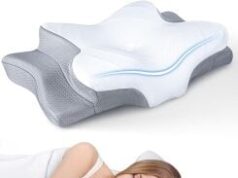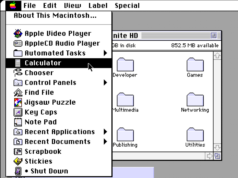
WD-40 is designed to prevent rusting by displacing the water in cracks and crevices in metal (that’s what the “WD” stands for). It is also a versatile lubricant, and can even be used as a solvent—but there are some places you should never spray it.
WD-40 doesn’t have the same viscosity as traditional grease or oil, and it can erode certain finishes, and it can cause problems when used as a substitute. Though it’s tempting to think it is a good idea everywhere you need to cut down on friction, here are some places you should definitely never use WD-40.
Don’t use WD-40 on plastic
If you’re trying to lubricate a hinge on a pair of sunglasses or remove a price tag from the surface of a plastic container, you might be tempted to reach for the can of WD-40…but you should never use it on a clear plastic surface or on polystyrene or polycarbonate plastic.
Commonly labeled #6, products that contain styrene include things like toys, disposable cups and cutlery, and appliances like smoke detectors. Polycarbonate, known as #7, can be found in kitchen appliances like refrigerators, clear packaging, plastic lenses, and safety gear. Because of the chemical makeup of WD-40, it can cause damage to these plastics and ruin things like sunglasses with plastic lenses. If you’re in doubt, it’s better to avoid using WD-40 on plastic.
Don’t use WD-40 on wood
WD-40 can dissolve wax finishes. If you’re using WD-40 to clean, you should keep it clear of wood floors and furniture. Since wax creates a water resistant barrier that protects woodwork from water damage, it’s better to leave the wax where it is. Also, because WD-40 can seep into the grain of unfinished wood, it’s generally not a good idea to use it on any wood surface, not just waxed ones.
Don’t use WD-40 on natural stone
Because WD-40 is good for lots of cleaning tasks, you might be tempted to try it on stone tile or countertops. But natural stone is porous, and you shouldn’t use WD-40 to clean it—WD-40 can soak into the surface of the stone and stain it. Also, many stone surfaces are treated with wax polish, and WD-40 can dissolve wax finishes.
Don’t use WD-40 on surfaces where you prepare food
Some appliance companies recommend using WD-40 to clean stainless steel, but you should never use WD-40 on surfaces that will be in contact with food. While a streak-free shine is a powerful motivator, WD-40 obviously shouldn’t be consumed. and while incidental contact with food isn’t a big deal, surfaces where food is in frequent or prolonged contact should never have WD-40 on them.
Don’t use WD-40 on electronics
You should never use WD-40 on electronics, which can react with some plastics as well as attract dust and other particles. Getting WD-40 on your smart phone or laptop can not only damage the screen, it can ruin the buttons or make its way into the internal components. It’s best to use a cleaner specially formulated for electronics.
Don’t use WD-40 on bike chains
Although WD-40 is sometimes used as a stand-in lubricant, it’s not a good substitute for bike-specific lubricant. It doesn’t have the right viscosity to be used as a chain lubricant and it can allow dirt and fibers to stick to it over time. While you can use WD-40 to clean your bike chain, it’s not a good idea to use it as a lubricant, and if you do decide to use it to clean your chain, you should reapply your regular chain grease afterwards.
Don’t use WD-40 for arthritis pain
This should be obvious, but unfortunately requires saying: In spite of persistent claims to the contrary, WD-40 will not help relieve arthritis pain or creaky, stiff joints. While there are plenty of ways that WD-40 can help lubricate things, your joints will not respond to it the same way as a stuck bolt. Human bodies definitely don’t use the same lubricant as engine parts, and medical professionals recommend against using WD-40 to treat any type of medical condition.








